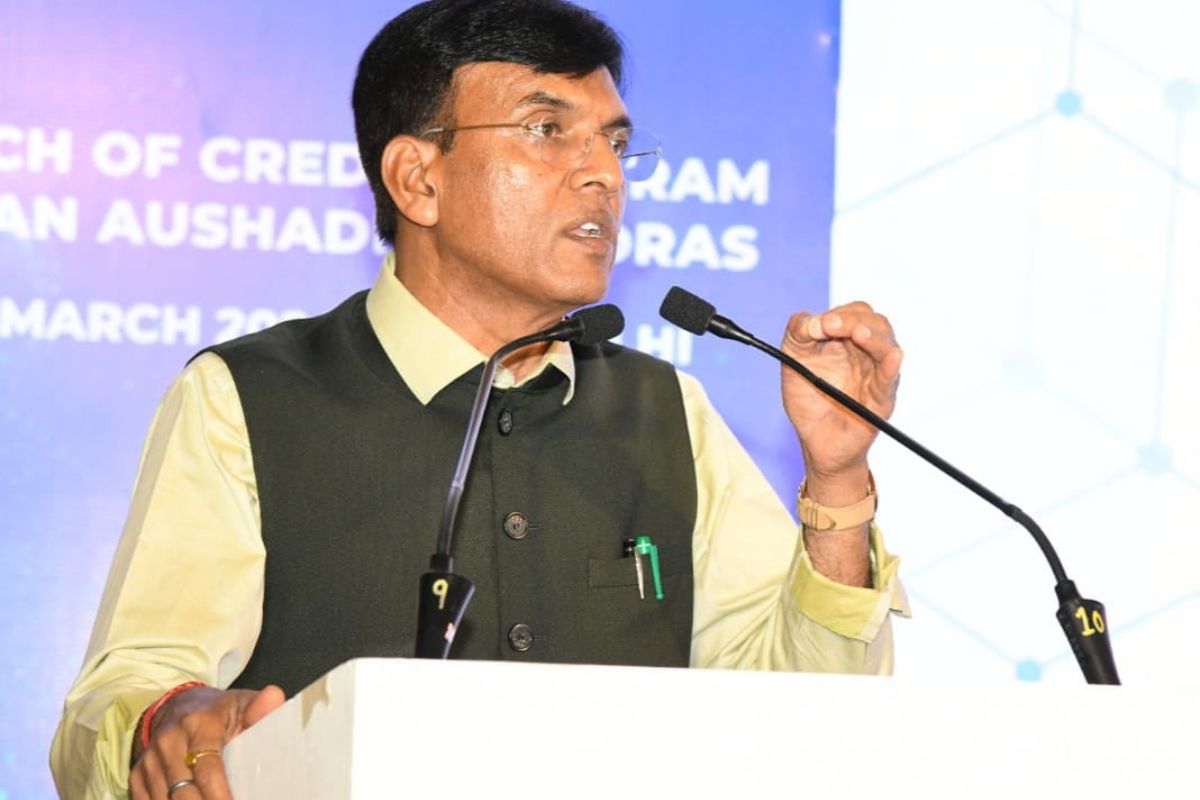With an objective to deliver the benefit of affordable and quality medicines for all Indian citizens, Union Health Minister Dr Mansukh Mandaviya inaugurated a credit assistance programme for Jan Aushadhi Kendras on Tuesday.
In this regard, he presided over the exchange of an MoU between Small Industries Development Bank of India (SIDBI) and Pharmaceuticals and Medical Devices Bureau of India (PMBI).
Expressing his elation at the MoU between SIDBI and PMBI, the Union Minister stated that “this MoU would emerge as a blessing for the small and new entrepreneurs of Jan Aushadhi Kendras (JAKs).”
Noting the potential of this MoU in further increasing, strengthening and modernising the network of Jan Aushadhi Kendras in the country, he urged the Ministry and SIDBI officials to highlight the benefits of this initiative to the states and people at the ground level to ensure its optimum utilisation.
After a successful completion of a pilot credit programme to provide working capital assistance to Jan Aushadhi Kendras, it has been decided to go ahead to provide credit facility of working capital to around 11,000 existing and proposed 15,000 Jan Aushadhi Kendras. SIDBI will offer the project loan for a credit limit up to Rs 2 lakh at a very competitive and affordable interest rate, which will work as a working capital and with easy recovery process. The entire ecosystem will be working on a digital mode while ensuring ease of doing business.
Addressing the gathering, the minister said, “Medicines which are affordable and accessible are an essential requirement for any society. PM Narendra Modi has called them ‘Sanjeevani’ for the poor. From only 80 Jan Aushadhi Kendras in 2014, there are around 11,000 units operating across the country today.”
He also said that “it is estimated that around 10 to 12 lakh people visit these Jan Aushadhi Kendras every day, providing them with significant savings and access to requisite medicines.”
Highlighting the Union Government’s efforts towards strengthening the network of Jan Aushadhi Kendras in the country, Dr Mandaviya said that a lot of effort went into making the procurement process robust, expanding the basket of products offered, maintaining a regular supply chain network as well as in ensuring stringent quality checks and control.
He also emphasised that the government provided financial assistance to individual operators of these Jan Aushadhi Kendras, including additional assistance for those located in remote and hilly regions, to encourage them to open these centres.
This, he said, provided small entrepreneurs with financial autonomy as well as strengthened the network and reach of Jan Aushadhi Kendras across the country.
Speaking on the credit programme for the JAKs, S Ramann, Chairman & Managing Director, SIDBI informed that the credit assistance programme takes advantage of both GST and the Digital Public Infrastructure (DPI) of India to provide unsecured working capital loan for small businesses.
He said that “DPI is currently based on the layers of identity (through Aadhar) and payment (through UPI linked with Aadhar). Today we are adding a third layer, a ‘credit layer’ using the other two layers in order to make credit flow to crores of small businesses who are not able to secure loans from banks and then get exploited by moneylenders.”












